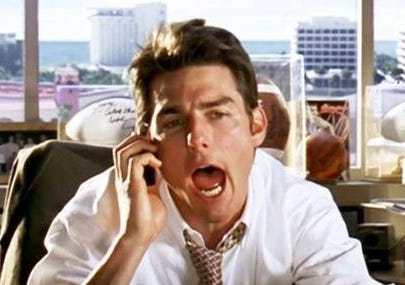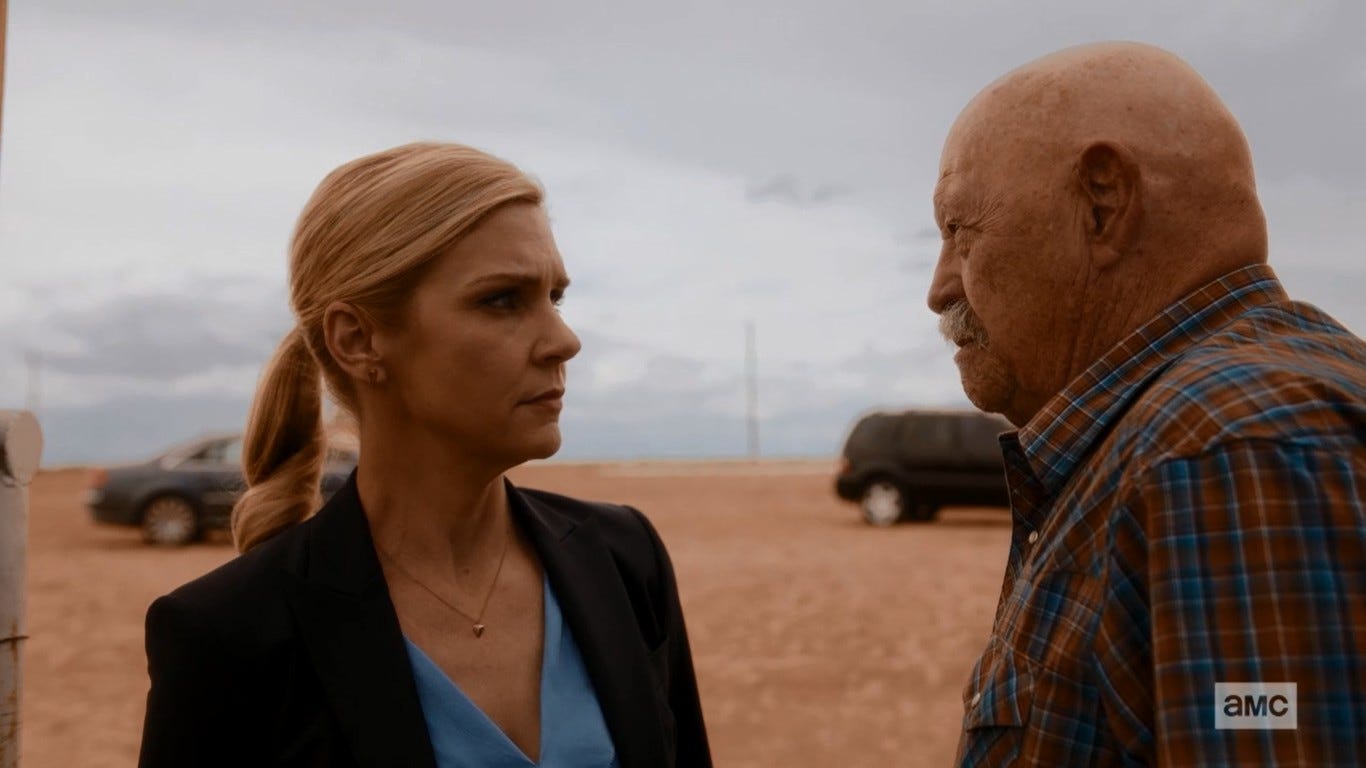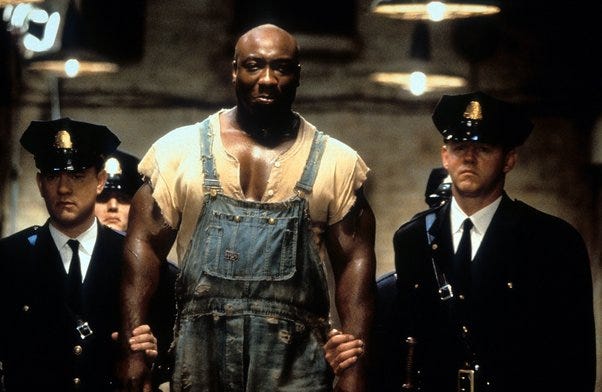Employee activists from your favourite films
Mr Incredible, Kim Wexler, Jerry Maguire and more
It’s summer, so let’s take a break from the pontificating emails for something a bit lighter.
You’ve read about the history of employee activism, countering slavery, fascism, overdevelopment, apartheid. You’ve read about some of the incidents of employee activism from just last year - on climate change, animal testing, surveillance tech.
But have you ever noticed it in some of your favourite films and TV shows?
The Incredibles
15 years after retirement, the former superhero Mr Incredible is now Bob Parr, insurance claims adjuster. Bob is in the midst of denying an old lady’s insurance claim when he has a change of heart, and gives her a roadmap on how to navigate the company’s bureaucracy and get her claim through. It’s not the first time, and he gets chewed out by his boss.
Bob’s manager seems prepared to deny legitimate insurance claims to boost profitability, a problem unfortunately not confined to fiction. Bob refuses to help exploit customers even though it would get his boss off his back.
Bob then throws his manager through several walls, a tempting tactic but one which most employee activism campaigns would do best to avoid.
Jerry Maguire
Sports agent Jerry Maguire gets frustrated with dishonesty in his industry and writes a mission statement calling for “Fewer clients. Less money.” - a way for better experiences for customers and better work-life balance for staff. He prints off a copy for every one of his colleagues.
His document was named “The Things We Think and Do Not Say”, a relatable title for many workplaces. His colleagues welcomed his speaking truth to power, giving him a standing ovation when he arrives to work.
And then he gets fired and declares his love for black people.
Scrubs
Season 6, Episode 13 - My Scrubs
In Sacred Heart, staff across the hospital work together to ensure that an uninsured patient can still get treatment, passing her off as a recently deceased patient whose insurance will cover her care.
Man, the mere thought of the messed up U.S. healthcare system is enough to make this European ill. It’s by and large a public policy failure, though pharmaceutical companies could also do more to improve access to medicine.
At least no one gets fired in this one! What’s a bit of fraud between friends…
Better Call Saul
Season 5, Episode 3 - The Guy for This
Kim Wexler is a lawyer in the show Better Call Saul, prequel to the cult classic Breaking Bad. Kim works at a typical medium-sized corporate law firm, where she heads up the banking division, but her real passion is pro bono work for vulnerable criminal defendants.
In one episode, Kim is called away from a pro bono case after insistent calls from her main banking client, who wants an old man kicked out of his home so they can knock it down and build a call centre. Kim gets stung by an accusation from the cantankerous old man:
You’re one of those people that give a little money to charity every month, so you can make up for all the bad that you’ve done. You go to a soup kitchen once a year on Thanksgiving, that makes you feel a whole lot better about yourself… I don’t know how in the world you sleep at night.
She threatens him but later, feeling guilty, she sneaks back in the dead of night to try to make amends, offering to sacrifice her own time and money to help him and offset the impact she was having on him through her work.
Pro bono can be a source of meaning for lawyers and other professionals, but it can also be used to distract from the impact of their business-as-usual work. Law Students for Climate Accountability is one attempt to help potential recruits get a better picture of how law firms are really impacting climate change through their client work.
The Green Mile
This film is based on a Stephen King novel, telling the story of a group of death row prison guards and the men they were overseeing, including one with supernatural powers.
There are a few examples of what could be deemed employee activism here, as the guards bend the rules in various ways to make life for the prisoners a bit more pleasant, but one of the most memorable moments is when the main character (played by Tom Hanks) is tempted to let one of the prisoners go, faced by the conflict between what is right and what his job requires him to do:
On the day of my judgement, when I stand before God, and he asks me why did I kill one of his true miracles, what am I going to say? That it was my job?
And for one based on a true story:
Snowden
A biopic whose protagonist you’ll hopefully be familiar with, Edward Snowden is a former contractor for the U.S. National Security Agency (NSA) who discovers the extent of secretive government surveillance programmes and becomes a whistleblower, exposing the truth to the public.
Snowden shows the price one can pay for staying true to their beliefs at work: he has spent the last decade in Russia in exile, unable to return home where he is a wanted man.
In fiction, the “right” thing to do often seems so obvious, and we just assume we would act the same in that situation. In reality though it’s less clear, it can seem like a grey area, or is hidden under the surface. Through our workplaces, most of us are connected one way or another to issues like climate change, human rights infringements, poor treatment of animals - issues that will probably seem like such clearcut wrongs in years to come. Have a dig around to see what you can do.







